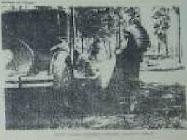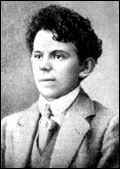Interesting musings on Pound & pastoral mode by Josh. I guess if I were in his shoes I would start with two juxtaposed notions of the term: 1) pastoral as idyllic escape/union with sheltering landscape; 2) pastoral as in "pastoral letter" - didactic wisdom, prudence, guidance : the pastor, through wisdom, is a shepherd of the people.
Then I would investigate the intellectual frameworks grounding any particular pastoral idyll : the idea that every literary "Eden" (Biblical, Alexandrian, et al.) is framed by a prudential logic of loss and return - even the Epicurean versions (escape to pleasure for its own sake) are based on a logical assertion. In this perspective, the two definitions of "pastoral" always go together, depend upon each other : we do not return to the peaceable kingdom until we "return" inwardly, through conversion, repentance, discipline, struggle (personal/historical), etc. The road to the promised land leads through the desert : this is the ur-plot of pastoral. The pastor is the shepherd who guides through desert to pasture. Wisdom is expressed in speech, and thus the poet, the bearer of sacred speech, is the pastor.
Then I guess I would examine Pound's poetry & example using a kind of 4-fold diagram: on the horizontal, I would look at the development of "pastoral" imagery - identified using both definitions of the term, as described above - chronologically through the Cantos. On the vertical axis, I would: a) examine Pound's ideological commitments from 1918-1930, and b) look at what were the consequences of those commitments - what effect they had on his own life.
What information might I draw from this grid? An image might emerge which would show how Pound's commitment to enacting the pastoral mode - ie., taking on the role of an actual pastor leading an actual flock, through actual history toward a possibly real Earthly Paradise - had at least a couple of results: first, Pound sort of took his writing beyond "art" (the Cantos are a kind of palimpsest, a mumbled personal farrago of texts); second, this text he created provides a sort of photo-negative of pastoral. The moral blindness of some of his commitments led him into his own personal hell (madness, treason, incarceration, silence). The continuance of the praxis (making the poem) forced him to represent not only his visions of various forms of Paradise, but also some of his own failures & mistakes. This blend, the Cantos, is the resulting scar tissue : aestheticized (fascistic) dream-history replaced by the haltingly-narrated revenge of real history upon his own hubris.
12.17.2004
Labels:
Josh Corey2,
pastoral,
Pound,
social role3
Subscribe to:
Post Comments (Atom)



No comments:
Post a Comment